Discover The Root Cause Medicine Podcast
The Root Cause Medicine Podcast

The Root Cause Medicine Podcast
Author: Rupa Health
Subscribed: 754Played: 27,918Subscribe
Share
© 2025 Rupa Health
Description
In each episode, we’ll meet renowned medical experts, specialists and pioneers who’ve influenced the way certain conditions and diseases are understood and treated. We focus on giving you the information you need to understand the root cause, symptoms and treatments available for specific medical conditions.
318 Episodes
Reverse
In this episode of the Root Cause Medicine Podcast, Dr. Kate Kresge is joined by Dr. Eric Viegas, a leader in supplement safety at Fullscript, for a timely and evidence-informed discussion on lead exposure in protein powders and nutritional supplements. Amid rising media attention and consumer concern, the conversation unpacks how and why trace amounts of lead can appear in supplements, how different regulatory thresholds (Prop 65 vs. USP/ICH) should be interpreted clinically, and what toxicologically relevant exposure actually means. Clinicians will gain practical insight into cumulative lead exposure, patient risk stratification, and how Fullscript is advancing supplement quality through enhanced testing, transparency, and practitioner-facing safeguards.
In this “Health or Hype” rapid-fire episode, Dr. Kate Kresge teams up with Dr. Chris Sands, DPT, OCS, and Dr. Gabe Kresge, DPT, to sort running fact from fiction. They break down why strength training rarely “bulks up” runners and more often boosts efficiency, why single-leg strength better reflects the true demands of running than squats alone, and why minimalist shoes (and cushioning) should be chosen based on individual capacity and a gradual transition. They also address joint health—explaining why moderate, well-programmed running isn’t automatically “wear and tear”—and close with a practical prevention message: running assessments can catch issues before pain starts, and most injuries trace back to training load and under-recovery more than biomechanics.
This episode of the Root Cause Medicine Podcast explores the Modern Running Assessment, an evidence-informed, data-driven framework for evaluating runners’ biomechanics, load tolerance, and performance capacity. Host Dr. Kate Kresge interviews Dr. Chris Sands, DPT, OCS, and Dr. Gabe Kresge, DPT, from Kinetic Physical Therapy to examine how modern tools—dynamometry, force plate testing, slow-motion gait analysis, cadence and vertical oscillation metrics, and single-leg endurance testing—provide objective information that visual observation alone may miss. These measurable insights help clinicians better understand strength-to-body-weight ratios, inter-limb asymmetries, foot-strike loading patterns, and fatigue-related movement changes, offering a clearer picture of the factors that may influence running efficiency, durability, and injury risk.
We’re launching a new series that brings the insights that Fullscript Chief Medical Officer Dr. Jeff Gladd normally shares only with our internal team—now open to the entire integrative and functional medicine community. This month, Dr. Gladd breaks down three emerging clinical priorities with immediate relevance to whole-person care. He covers why the American College of Cardiology is now recommending high-sensitivity CRP (hs-CRP) for universal cardiovascular screening, how grip strength paired with BMI is outperforming traditional biomarkers in predicting metabolic decline and all-cause mortality risk, and what new evidence tells us about saffron as supportive care for patients experiencing SSRI-related sexual side effects.
This episode features Dr. Neda Gioia, OD, CNS®, IFMCP, a pioneer in integrative eye care who blends optometry, clinical nutrition, and functional medicine to advance preventive vision strategies. Clinicians will learn how gut-eye axis mechanisms, AI-driven oculomics, sex-hormone transitions, and nutrient patterns influence ocular inflammation, retinal biomarkers, and whole-system health. Dr. Gioia illustrates how modern imaging (including emerging AI models), stool and hormone testing, and nutrient evaluation can support earlier identification of risk patterns and more personalized, prevention-forward care for patients across the lifespan.
In this inspiring episode of the Root Cause Medicine Podcast, Dr. Kate Kresge welcomes Dr. Cynthia Libert, a board-certified family physician, functional medicine expert, and creator of The Joy Prescription. Together they explore the biochemistry of joy, how gratitude reshapes brain connectivity, and how positive emotion can help to modulate inflammation, support neuroplasticity, and protect cognitive health. Clinicians will learn practical ways to integrate “joy prescriptions” into patient care, using evidence-informed tools to foster resilience and prevent burnout.
In this episode of The Root Cause Medicine Podcast, Dr. Kate Kresge interviews Dr. Chris Magryta and Dr. Erik Lundquist about Advanced Blood Labs 201—a course designed to help clinicians interpret metabolic and immune biomarkers across pediatric and adult populations. They explain how to use tests like C-peptide, adiponectin, leptin, and glutathione to identify early metabolic stress, and explore immune indices such as SII (Systemic Immune Inflammation Index) and SIRI (Systemic Inflammation Response Index) to uncover inflammation trends in both children and adults.
James Greenblatt explores the evolving science of low-dose lithium as a neuroprotective intervention — highlighting its potential to prevent, slow, and even reverse cognitive decline associated with Alzheimer’s disease. He emphasizes that safe, nutritional lithium (2-10 mg) can support brain health by reducing neuroinflammation, promoting neuroregeneration, and stabilizing mood—without the risks associated with pharmaceutical doses. Clinicians are encouraged to assess lithium status through hair mineral analysis, monitor thyroid and kidney function, and consider environmental and dietary influences on endogenous lithium levels. By integrating low-dose lithium into a comprehensive, individualized care plan—including lifestyle modifications and targeted testing—practitioners can leverage this simple mineral to support mental clarity, impulsivity regulation, and long-term cognitive resilience.
James Greenblatt explores the evolving science of low-dose lithium as a neuroprotective intervention — highlighting its potential to prevent, slow, and even reverse cognitive decline associated with Alzheimer’s disease. He emphasizes that safe, nutritional lithium (2-10 mg) can support brain health by reducing neuroinflammation, promoting neuroregeneration, and stabilizing mood—without the risks associated with pharmaceutical doses. Clinicians are encouraged to assess lithium status through hair mineral analysis, monitor thyroid and kidney function, and consider environmental and dietary influences on endogenous lithium levels. By integrating low-dose lithium into a comprehensive, individualized care plan—including lifestyle modifications and targeted testing—practitioners can leverage this simple mineral to support mental clarity, impulsivity regulation, and long-term cognitive resilience.
True longevity requires metabolic flexibility, but how can we help our clients get there?
This episode previews personalized metabolic health and longevity strategies from Dr. Rob Downey and Monique Class, presenters at Fullscript Forward 2025. Dr. Downey discusses how metabolic phenotyping, stress/HRV context, and GI patterns can inform evaluation, while Monique describes low-dose (microdosed) GLP-1 approaches, titration by response, and gradual tapering within lifestyle-first care model help them achieve impactful results for their clients. The conversation explores objective monitoring (labs, body composition), muscle-preserving movement, and structured workflows that may help patients sustain progress after medication changes. This episode is for informational and educational purposes only.
This episode of The Root Cause Medicine Podcast explores how the 2025 GLP-1 prescribing advisory from the American College of Lifestyle Medicine, the American Society for Nutrition, the Obesity Medicine Association, and The Obesity Society can act as a catalyst for whole-person metabolic care—rather than just symptom management. Lara Zakaria, IFMCP, pharmacist and functional medicine practitioner, breaks down the new consensus guidelines and highlights opportunities to integrate nutrition counseling, strength training, and lab monitoring to support muscle preservation, nutrient adequacy, and patient safety. You’ll hear Lara’s practical approach—starting with screening for eating disorders and nutrient status before prescribing—and learn how to design workflows that make guideline implementation realistic in busy clinical settings. Providers will leave with evidence-informed strategies to improve patient outcomes, minimize side effects, and support sustainable behavior change around GLP-1 therapy.
This episode of The Root Cause Medicine Podcast takes a deep dive into postpartum care—challenging the idea that one six-week checkup is enough. Serena Saeed-Winn, CNM, WHNP, IBCLC, shares how earlier postpartum visits may help identify concerns such as thyroid changes, support lactation comfort through therapeutic breast massage and lymphatic techniques, and guide gentle scar care for improved comfort and pelvic floor recovery. You’ll also hear insights on hormonal shifts, nutrient needs, and postpartum mental health considerations—plus practical strategies to engage partners and build collaborative care teams. Providers will leave with actionable, evidence-informed ideas to better support families during this critical transition.
In this episode of The Root Cause Medicine Podcast, Dr. Kate Kresge welcomes Dr. Asare Christian, MD, a pain medicine and rehabilitation specialist, to explore the complex physiology of migraines and how a root-cause or functional medicine approach can transform treatment. They discuss the various triggers, including hormonal fluctuations, gut health, inflammation, and environmental toxins, as well as innovative natural therapies, supplements, and device options that empower patients to take control of their headache management. This conversation offers a comprehensive view of migraine care beyond conventional medications, emphasizing education, prevention, and personalized strategies for lasting relief.
In this episode, Dr. Kate Kresge welcomes Dr. Christy Evans, an OB/GYN with a passion for functional women’s health. They discuss how pregnancy transforms every body system, the importance of a comprehensive lifespan approach to women's health, and the innovative methods Dr. Christy uses at Almond OB/GYN. She shares her journey from accountant to physician, the significance of addressing root causes behind common symptoms, and how holistic care can optimize vitality and long-term health. Plus, insights into postpartum recovery, PCOS, and practical strategies to support women at every stage of life.
In this episode, Dr. Kate Kresge is joined by Dr. Ellen Vora to explore holistic approaches to anxiety beyond physiological root causes. They discuss how mindful movement, play, connection, and emotional regulation—such as cry therapy—can serve as powerful tools in managing true anxiety. Emphasizing the importance of integrating mind, body, and spirit, this conversation offers practical strategies for clinicians and individuals looking to deepen their understanding and treatment of anxiety.
In this episode, Dr. Kate Kresge welcomes Dr. Eric Viegas back to discuss the often-overlooked details surrounding the quality and safety of omega-3 supplements. While omega-3s are celebrated for their benefits in cardiovascular health, inflammation, and cognition, contamination and oxidation can undermine their efficacy and even pose health risks. They explore the pivotal role of rigorous testing, manufacturing standards, and how practitioners can guide patients to choose high-quality, safe omega-3 products in a landscape filled with variable quality claims.
In this episode of the Root Cause Medicine Podcast, Dr. Kate Kresge interviews Kristin Oja, DNP, founder of STAT Wellness, one of the first clinics in the U.S. to combine functional medicine and movement under one roof. Kristin shares her remarkable journey from personal trainer to nurse practitioner to entrepreneur—growing STAT from backyard bootcamps into a thriving multi-location practice redefining modern healthcare. Kristin dives into why muscle mass is a vital sign, how data and personalization are at the heart of STAT’s model, and what it takes to build a clinic that truly supports patients and staff. From lab testing and team culture to scaling with integrity, this episode is both inspiring and tactical—especially for practitioners looking to chart their own course in functional medicine.
In today's episode of The Root Cause Medicine Podcast, Dr. Kate Kresge dives into men's health, neurology, and fertility with Dr. Eric Yarnell. You’ll hear us discuss:
1. Testosterone and its impact on the male body
2. The dangers of relying on Internet medical information
3. Addressing male factors in infertility treatment
4. The role of herbal medicine in optimizing testosterone production
5. High testosterone and prostate conditions
6. How diet and gut health influence prostate health
Dr. Eric Yarnell is the President of Northwest Naturopathic Urology, focusing on men's health, urology, and nephrology. He is also a Professor at Bastyr University in the Department of Botanical Medicine, alongside running two businesses in botanical medicine and publishing. He is the author of numerous texts and articles, including Natural Approach to Gastroenterology, Natural Approach to Urology, Natural Approach to Prostate Conditions, and Naturopathic Nephrology.
Order tests through Rupa Health, the BEST place to order functional medicine lab tests from 30+ labs - https://www.rupahealth.com/reference-guide
In this episode of the Root Cause Medicine Podcast, Dr. Kate Kresge welcomes back Dr. Cheryl Burdette—naturopathic physician, educator, and founder of Precision Point Diagnostics—for a deep dive into one of the most evidence-backed biomarker bundles in functional medicine: the Gut, Oxidation & Stress panel.
Dr. Burdette explains how ten underutilized but highly predictive biomarkers—including anti-LPS antibodies, zonulin, 8OHdG, F2-isoprostanes, glutathione, and more—can give clinicians a full-body snapshot of inflammation, leaky gut, immune dysregulation, and oxidative stress. She discusses how each marker ties into chronic conditions from cardiovascular disease to autoimmunity to neuroinflammation—and exactly how to intervene when these labs are out of range.
This is a must-listen masterclass for any practitioner working with chronic illness, mystery symptoms, or “normal” labs that don’t tell the whole story.
You’ll Hear Them Discuss:
- Why LPS antibodies are one of the most predictive markers in medicine today
- How oxidative stress contributes to cardiovascular disease, autoimmunity, and brain fog
- What 8OHdG, zonulin, secretory IgA, and glutathione tell us about barrier integrity
- The surprising links between gut dysfunction and GLP-1, mood, and immune balance
- Case studies showing biomarker-guided interventions that worked
- How to boost glutathione (and what forms work best)
- When to re-test and what lab shifts to look for
- Advanced testing for food sensitivity: IgG subclasses, complement, and tolerance vs. reactivity
- Natural GLP-1 agonists, bitters, fiber, and bile as part of metabolic healing
In this episode of the Root Cause Medicine Podcast, Dr. Kate Kresge is joined by Dr. Jessica Christie, a licensed naturopathic doctor, clinical nutritionist, and integrative fertility expert, to discuss a diagnosis that frustrates both patients and practitioners: unexplained infertility.
Dr. Christie explains that “unexplained” can sometimes mean “we haven’t found the root cause yet,” and she walks us through six of the most common hidden causes of fertility struggles—from subclinical hypothyroidism and nutrient deficiencies to autoimmune markers and environmental toxin exposure.
Whether you’re a patient searching for answers or a practitioner looking for a more complete workup, this conversation offers evidence-based strategies, powerful case examples, and a hopeful message: unexplained doesn’t mean unsolvable.
You’ll hear them discuss:
- Why “unexplained infertility” is a diagnosis of exclusion—and what it often misses (Abdallah et al., 2020)
- Six common, often-overlooked root-cause contributors to fertility struggles
- How research links subclinical hypothyroidism with IVF success rates (Cho et al., 2015)
- The immune markers linked to miscarriage and implantation failure (Demir et al., 2009; Shahbazi et al., 2019; Sauer et al., 2010; Jalilvand et al., 2023; Edassery et al., 2010)
- Why gut and vaginal dysbiosis matter for egg quality and implantation (Patel et al., 2022; Tersigni et al., 2014; Blancafort & Llácer, 2023)
- The micronutrients most essential for fertility—and most commonly deficient (Skoracka et al., 2021; Ji et al., 2023)
- How to approach detoxing safely when trying to conceive (Jain & Singh, 2022; Pizzorno, 2017; NCCIH, 2019)
- Real patient stories that show what’s possible with root-cause medicine


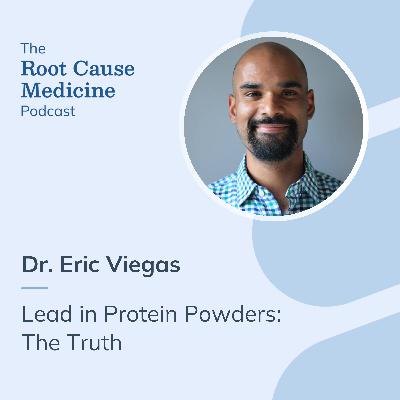
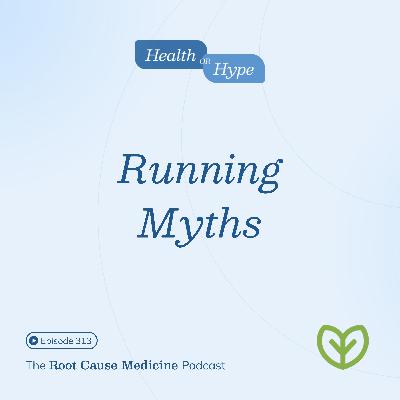

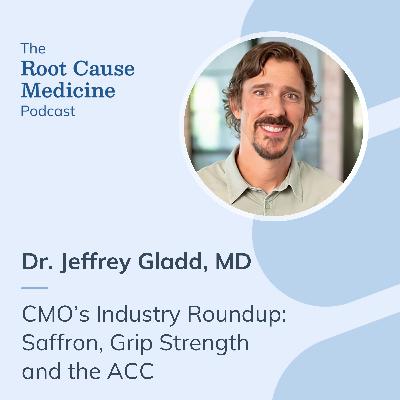
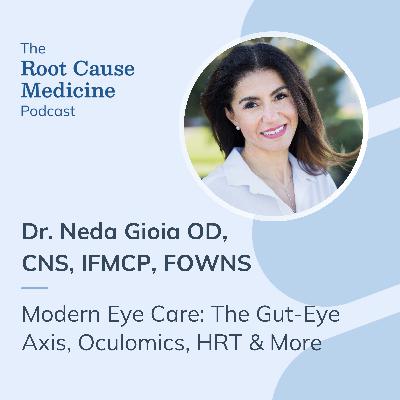

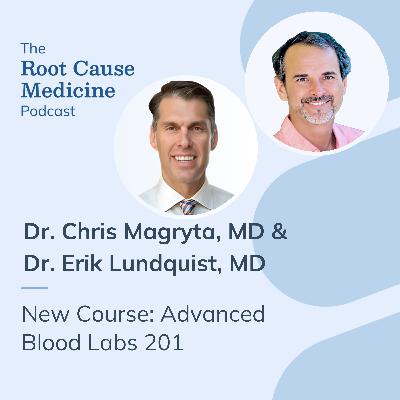
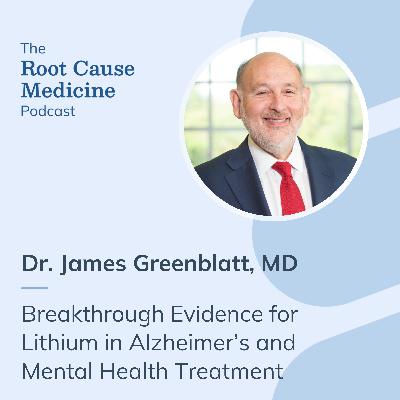

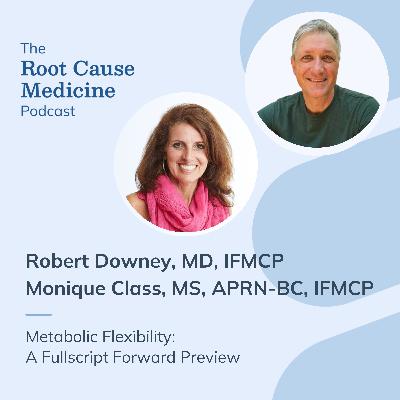

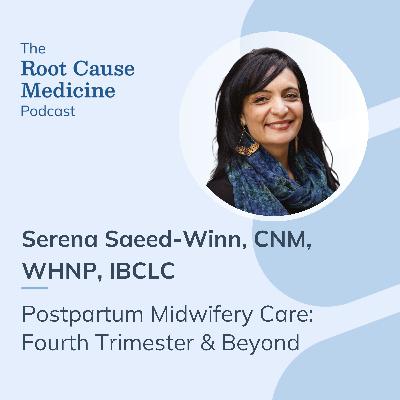
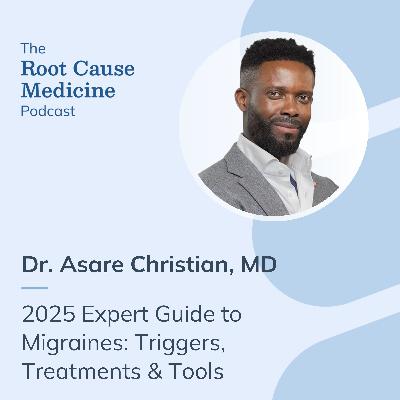
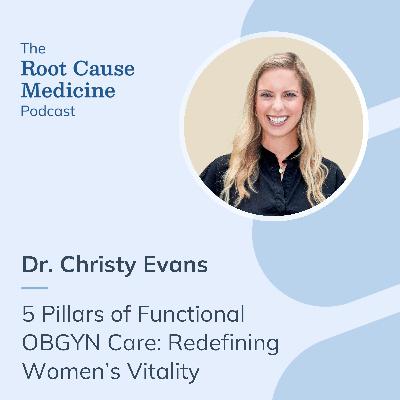


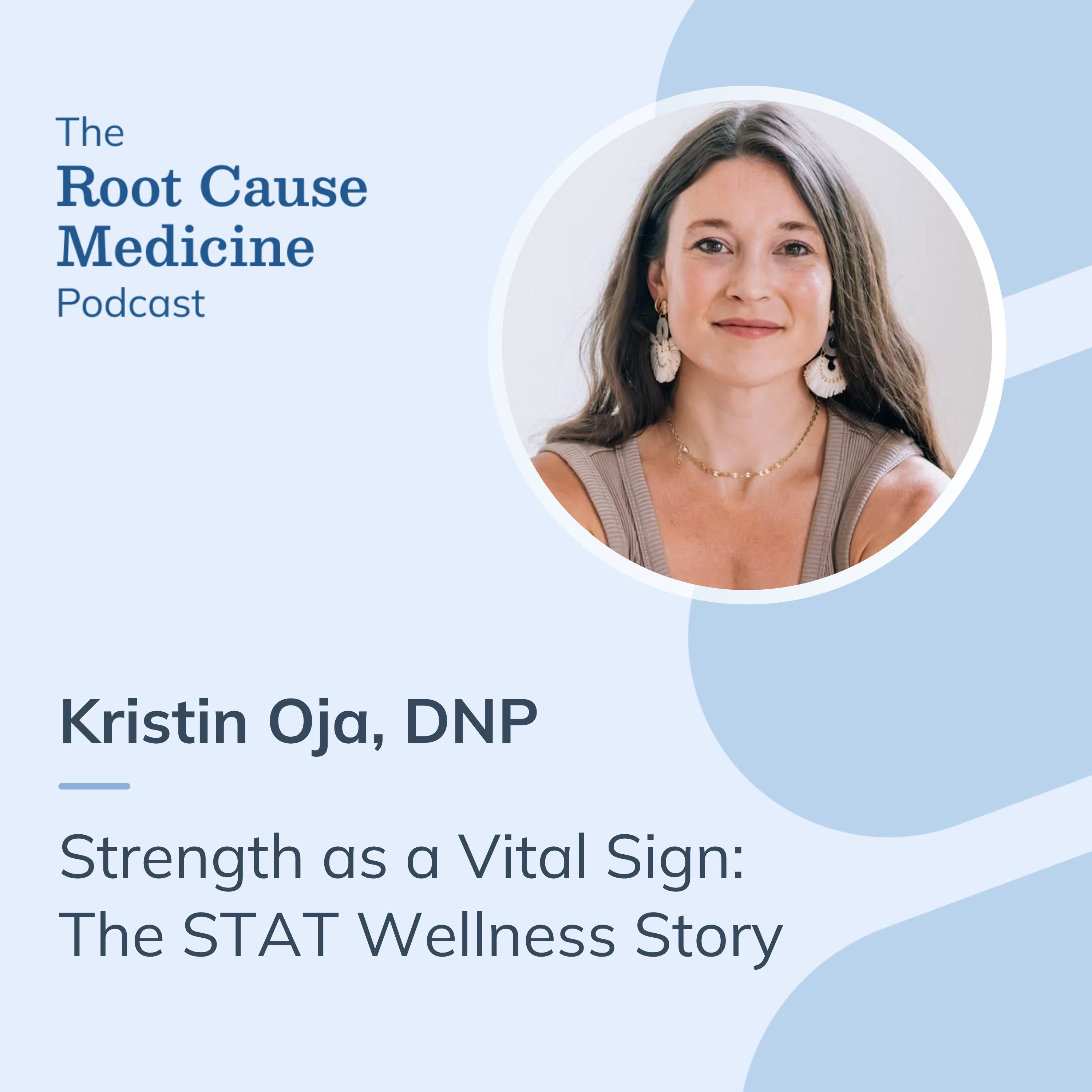
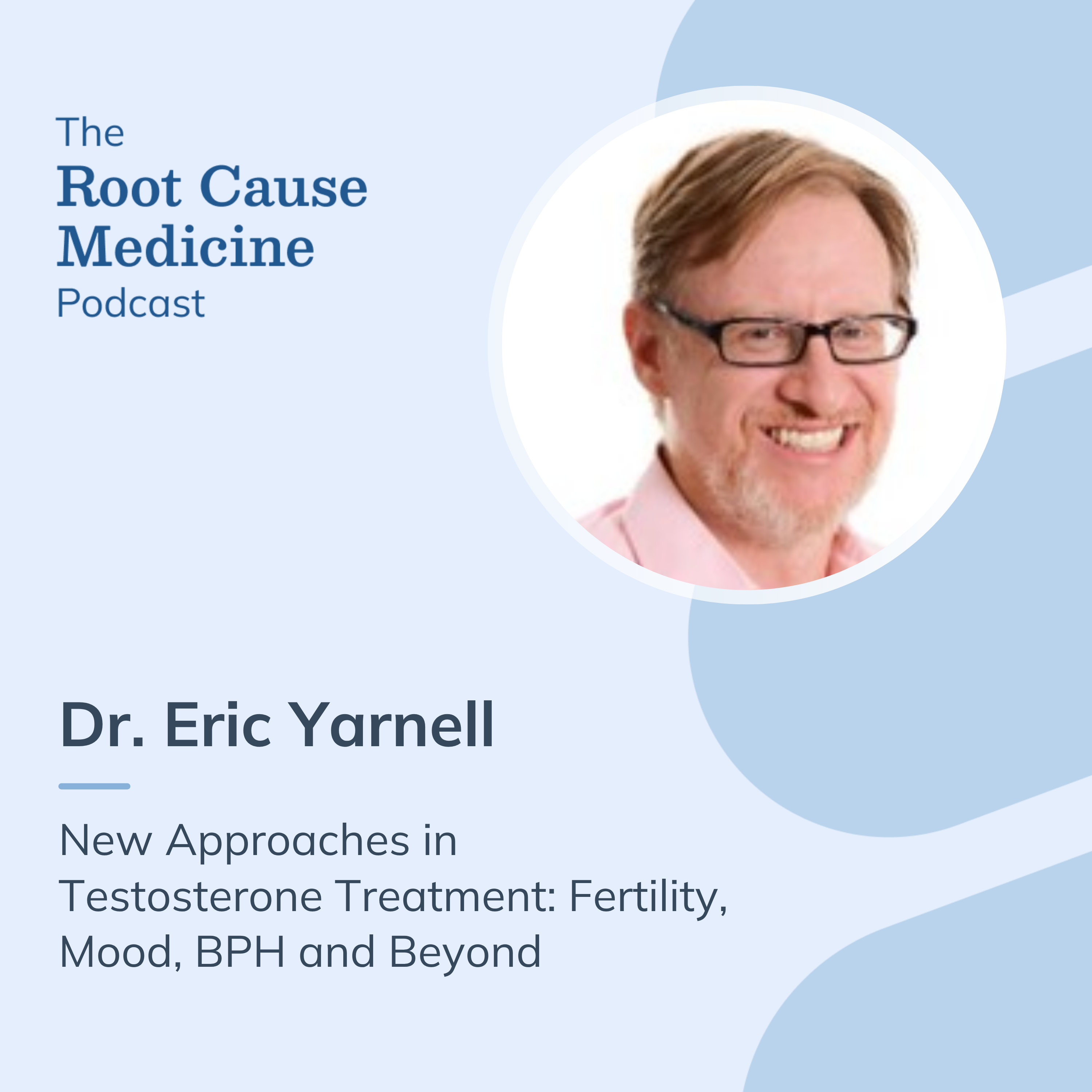
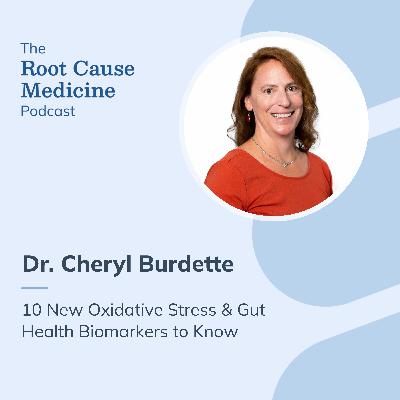
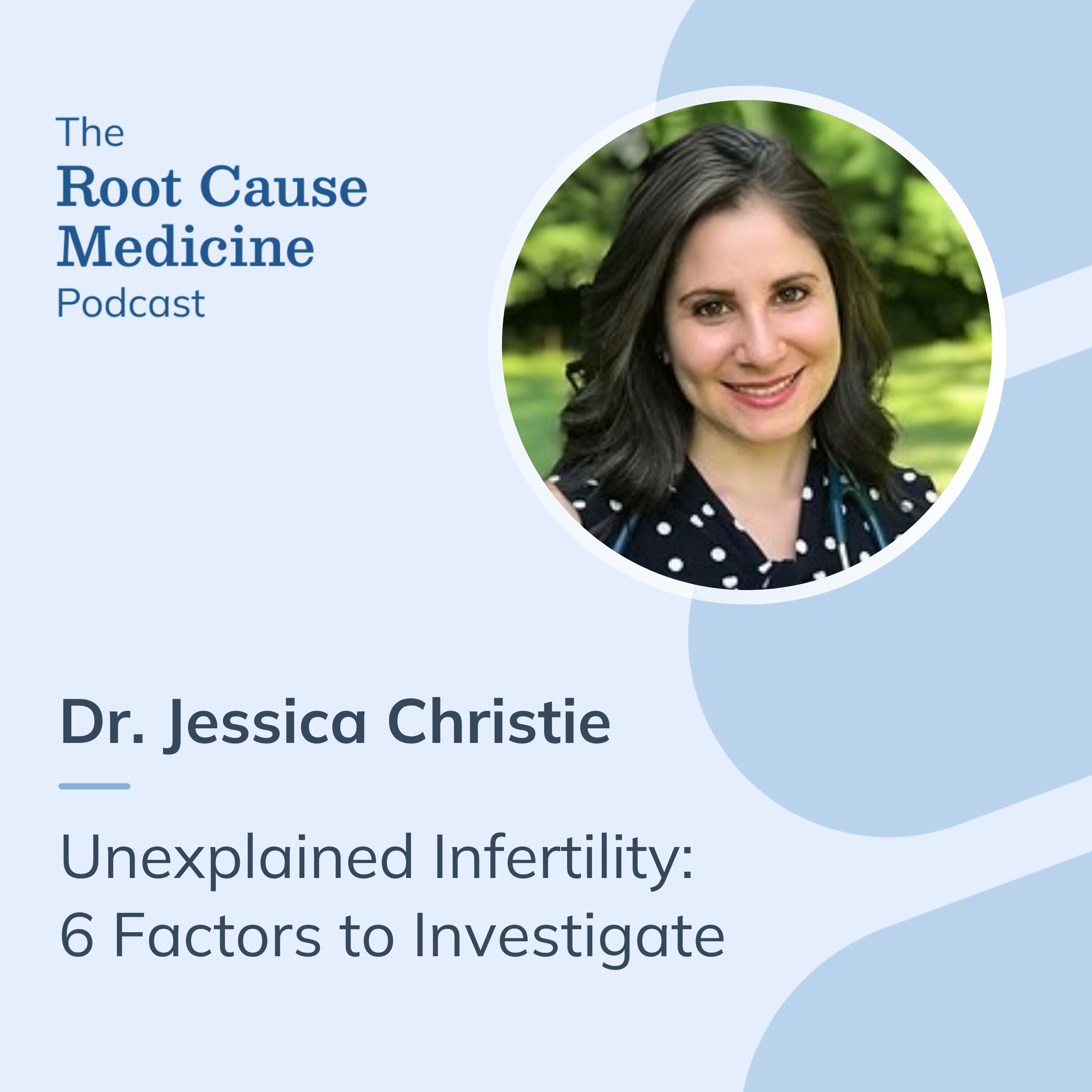



loved it! I learned so much & look forward to putting it into play.
Loved this episode! Sharing it with my friends.
Great information!!! I have been a registered Dental Hygienist for almost 31 years now, and the fluoride issue has been bothering me for a while now. I hope some changes in policy ate coming our way!
this doctor speaks to my soul... I'm buying her book right now!